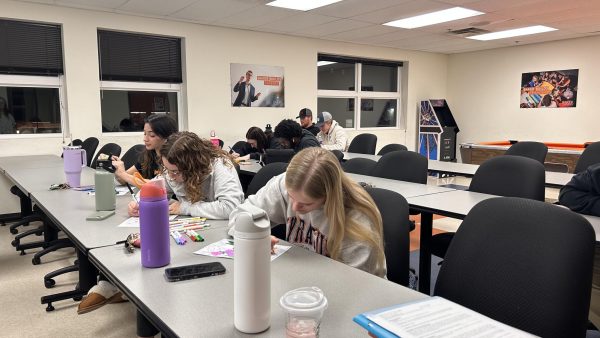Absence policies differ among classes, cause confusion
October 16, 2014
Baker students have begun to notice differing attendance policies in their classes. Professors are able to set their own policies for class attendance, and the variance across classes has led to confusion for some students.
Freshman Olivia Allen came to college under the impression that there would be no attendance policies. She thought students would be able to make the decision of whether or not to go to class, without being punished for their decisions. However, she believes the restrictions to be rather rewarding, in terms of classroom grades.
“It’s kind of nice having attendance policies because I don’t want to miss class out of fear of punishment,” Allen said. “However, it would be even better if there was one policy set for all classes so I wouldn’t get confused.”
Allen said the strictest punishment any of her professors gives is a three percent loss of grade for every absence after the first three. In another class, the syllabus states that class attendance will not be graded.
Freshman Abby Kaff said she has confusing policies in her classes as well. In one of her math classes, the syllabus says students are expected to attend class, but then it states there is no formal punishment for missing.
For another one of Kaff’s math classes, the syllabus says attendance is required and there is a strong negative correlation between the number of classes missed and the final grades for the class. However, it does not state if points are taken from students for not showing up, or if students will simply struggle in class if they do not attend regularly, resulting in a lower grade.
“I go to class every day, because I’m never completely sure if it will count against me or not if I skip class,” Kaff said.
Dean of Students Cassy Bailey teaches two Salon 101 classes in which she has set a strict attendance policy, stating students are allowed to miss one class. After that, for each absence, they lose seven points that go toward their final grade for the semester. Five points are lost for missing class, one for missing the daily quiz and one because students are not able to participate in class for that day.
The policy is clearly stated in her class syllabus. There are only 100 points for the semester in her Salon 101 classes, so each day students miss class after the one “free pass,” they automatically lose 7 percent of their grade for the semester.
“I don’t think it should be this way for every class,” Bailey said. “I only have it this way because our class only meets once a week.”
Bailey made a strict policy, but she said she is always willing to talk with students and work out any problems. If her students have a legitimate excuse, then their absence will not be counted against them. Also, if a student has a long illness or another serious problem, Bailey said she might make an exception so that his or her grade will not suffer.
“I feel like attendance is really important, and I want students to value Salon 101,” Bailey said.
The 2014-15 student handbook does not contain an official attendance policy, so instructors often come up with their own policies.
“It’s a good thing, because it gives each instructor academic freedom,” Acting Dean of the College of Arts and Sciences Martha Harris said.











